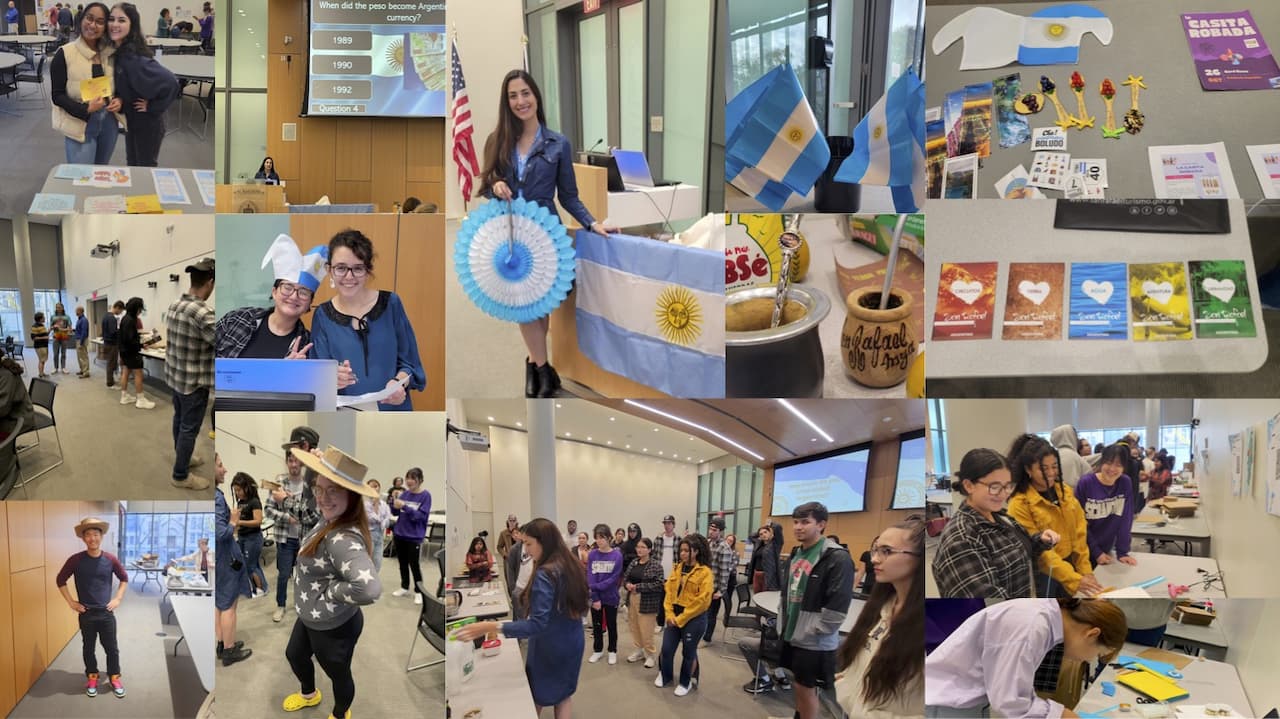Students attend event that celebrates Argentinian culture

Students attending the cultural event “Celebrate Argentina” experienced traditional food and beverages, games, art and trivia. The cultural event on October 26 was led by Fulbright Teaching Assistant, Magalí Ferrer.
Various stations were set up with the goal of informing students about Argentina through an engaging process.
At the first station students could prepare a traditional Argentinian beverage known as mate. A hot drink, like tea, mate is sipped through a shared metal straw from a specific type of cup filled with yerba. Posters placed around the station explained how to prepare the drink, and a memory game involved vocabulary about mate.
The second station involved the preparation of a symbol recognized throughout the country: a gaucho, an Argentinian cowboy hat.
“Making the hats was everyone's favorite,” Carmen Acosta, a Spanish tutor, said.
The third station focused on making rosettes, a national symbol usually worn by all Argentinians on important dates like Independence Day. Students were able to create them with paper.
At the fourth station, students played traditional Argentinian card games “Chancho Va” or “La Casita Robada” and recited challenging tongue twisters.
The last station included games such as popping balloons in pairs, searching for candy in plates full of flour, and tug of war.
To end the night, a trivia game tested participants on their knowledge about Argentina.
"It was so much fun! The activities Magali chose for the event really kept everyone engaged," said Claudia Campo Mirabent, a Spanish and French tutor at the Language Learning Center.
“I believe these events are important for the whole university community since they can experience other cultures from a native's perspective and interact with them," Ferrer said. "Not only are these events culturally rich, but they promote the attendees' empathy and understanding toward other nations and cultures.”






